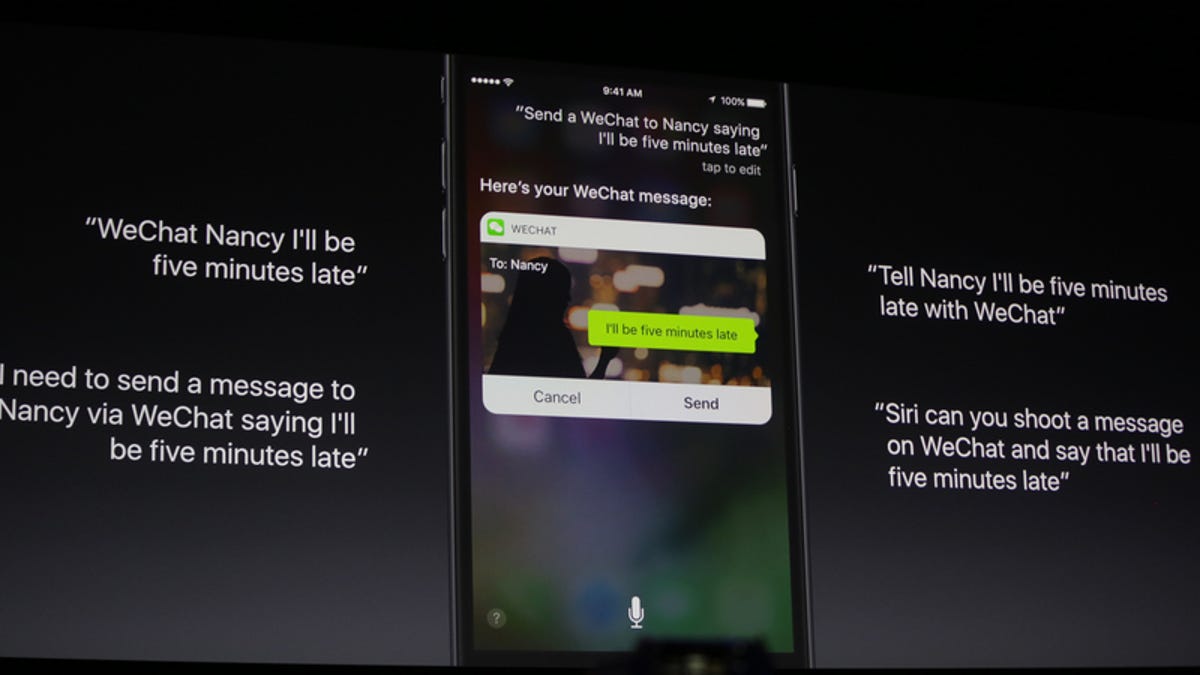Apple is pushing into China harder than ever
The company is unabashedly dropping a few China-focused features in its updated OS as it tries to make a bigger push into the world's largest economy.
Apple's desire to push into China was more evident than ever at its WWDC 2016 keynote.
Executives name-dropped Chinese apps such as WeChat, talked about DiDi (the Uber of China) and Alipay integrating into its Maps and Apple Pay systems and even demoed a new WatchOS 3 feature, called Scribble, with Mandarin characters.
The company's iPhones are big hits in China, with Apple often battling for the top spot in the country with local competitor Xiaomi. The iPhone's marketshare hovers around 20 percent in the country, compared to its 40-ish percent share in the US, where it's the market leader. That, coupled with China being the world's largest smartphone market, makes the populous nation a tremendously important area of potential growth.
But there are problems. Apple has reported a decline in sales figures, as Chinese rivals like Huawei and Xiaomi have figured out how to make premium flagship devices, like the Xiaomi Mi 5, and offer them at relatively low prices. Dominating China won't be easy.
"China is the biggest market for Apple outside of the US and in 2016, the Q1 iPhone shipments showed a major year-on-year decline in China," said IDC analyst Kiranjeet Kaur. "This comes at a time when some other Chinese vendors such as Huawei and Oppo have started gaining ground in the mid to high end segments as well."
Unlike in India, where Apple dropped the iPhone 6S' price, the company is focusing less on the price of entry and more on developing services to attract the Chinese market. Alipay, the ubiquitous wireless mobile payment service in China, will get integration with Apple Pay, and Maps will get ride-sharing features thanks to collaboration with Uber competitor Didi (Apple recently invested a cool $1 billion there). While it wasn't mentioned at the keynote, Maps will also show China's air quality, a feature useful in heavily polluted cities like Beijing. (Read also: Air pollution apps in China are no joke.)
New feature Scribble supports Mandarin characters as well.
And that's not all. Borrowing a feature from Xiaomi, Apple is hooking up with Chinese internet giant Tencent's security database to notify you if any unknown numbers that call you are from scammers. The screen mockup even showed a Chinese number.
Apple's collaboration with local companies is something of a political move, said Kaur, as regulatory hurdles are often thrown at foreign companies looking to expand into the market. Finding Chinese partners makes the whole process easier.
"All the name dropping just shows Apple's keenness to work with local companies and get consumers hooked onto the iOS ecosystem, offering at least as much if not more than what they are getting from competing platforms," she added.
The company made plenty of announcements about iOS at WWDC, but one of the clearest takeaways from the event is this: Apple wants China, bad.
Maps will feature Didi support for taking a car in China.


